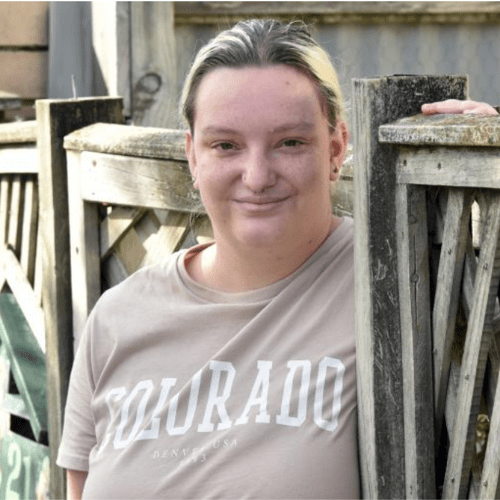Originally published in Otago Daily Times
By Fiona Ellis
A Dunedin woman says she was failed by the public health system after it was unable to diagnose her with a common yet debilitating condition.
Kimberley Elliott is urging the government to improve education and treatment for endometriosis after years of being brushed off and misdiagnosed.
Health New Zealand Te Whatu Ora (HNZ) estimates at least 1 in 10 women suffer from the disease, in which uterine tissue grows outside the uterus, causing a range of symptoms from extreme menstrual pain to bowel problems and infertility.
Despite its prevalence, it was not until Miss Elliott turned to the private health system for help that she was diagnosed.
“It was a last resort, really, having been failed by the public system.”
It was a relief to know what was causing the symptoms she had struggled with since age 12.
“I missed out on a lot of high school because of how much pain I was in, and ended up going to hospital a few times — all they did was just give me pain relief and discharge me.”
She had lost count of how many medications she had tried, but nothing seemed to work for long.
The public system wrongly diagnosed her as having chronic abdominal pain syndrome and chronic pelvic pain syndrome.
Doubting this, in 2021 she turned to the private system for help, visiting a specialist in Christchurch.
Laparoscopic surgery revealed endometriosis, at stage two of a possible four.
A nerve-blocking procedure followed, which helped relieve much of the pain.
However, it wore off after about a year and a-half, and subsequent nerve blockers and pelvic botox injections were not effective for long.
Another laparoscopic surgery was set for July to find out why.
Although she tried to stay positive, the condition had a big impact on her physical and mental health.
She complained to HNZ last year, and received a letter in response, apologising for her experience.
“Endometriosis can be quite a complex medical journey and [HNZ] would like to acknowledge the vulnerability and pain that this condition has caused you,” the letter said.
However, Miss Elliott said there needed to be more education about endometriosis for doctors and nurses, starting during their tertiary study.
She urged people not to normalise their pain, as happened all to often when others told them they should “take a bunch of medications and suck it it up”.
“It’s not something that’s normal in a menstrual cycle.
“It’s definitely worth getting checked out because it can be too late in regards to getting a diagnosis sometimes where you’d be told ‘you’ve got grade four, you’ll need a hysterectomy’.
“It’s not something any woman should go through, especially if they’re like me, wanting to have kids.”
Instead they should listen to their gut and seek a second opinion.
Throughout her health struggles, her parents had been there “every step of the way” to help her cope.
Her GP was helpful, as was the understanding attitude of her lecturers at Otago Polytechnic, where she studied animal healthcare assisting.
HNZ Southern group director of operations Hamish Brown said the organisation sympathised with patients facing healthcare challenges.
“We are committed to providing quality healthcare services to the community we serve.
“There is always room for improvement.”



